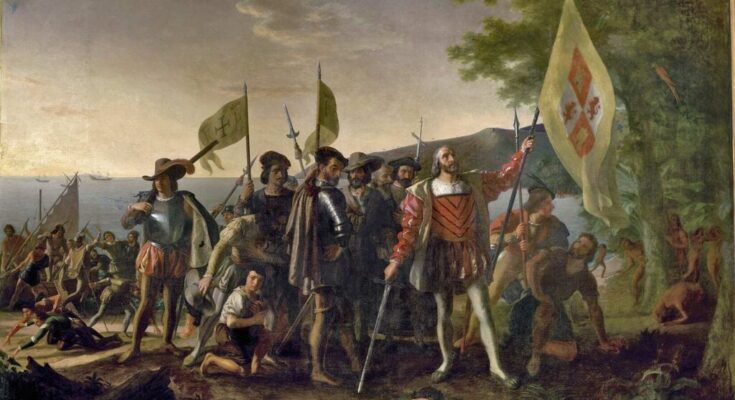
Many believe that St. Brendan, an Irish monk, discovered parts of the Americas long before Christopher Columbus arrived in 1492. Others suggest he may have landed on islands like the Canaries, Azores, or Madeira. However, ancient Irish records don’t make it clear where he truly traveled there.
Some researchers claim that groups such as the Phoenicians, Japanese, Chinese, and Basques arrived long before Columbus, following the Native Americans, according to The Irish Times.
However, this part of history provides little solid proof. Because of this, myths have sprouted alongside reliable theories and facts. Some of these myths are spread by historians with personal beliefs or agendas. Others come from people who purposely fabricate false stories.
Despite this, exploring early contact with the Americas is crucial for historians. At one time, people believed Leif Erikson’s Norse settlement in Vinland was just a legend to entertain Vikings through the long winters. Even a Norse map from 1440, showing the North American coast, was once deemed fictional, as reported by The Irish Times.
In 1960, archaeologists found the remains of a Norse village at L’Anse aux Meadows, located on Newfoundland, a Canadian island. This site is now considered the only clear evidence, outside of Greenland, that others reached the Americas before Columbus did.
Arab documentary “We Discovered America Before Columbus”
Saudi filmmaker Khalid Abualkair has released a documentary titled “We Discovered America Before Columbus.” The film explores the idea that the Arabs of al-Andalus and the Muslim kingdom of Mali may have reached the Americas centuries before Columbus.
A significant part of this claim about the Arabs of al-Andalus comes from the work of historian Luisa Isabel Álvarez de Toledo y Maura, the 21st Duchess of Medina Sidonia in Spain. Known as the “Red Duchess” for her opposition to the dictator Franco—who imprisoned and later exiled her—she inherited one of Europe’s largest private archives.
Through her research, she became convinced that the Arabs of al-Andalus, which is now Andalusia in modern Spain, and Morocco had discovered and traveled to the northern parts of South America regularly.
The duchess claimed that her archives held early references to plants native to the Americas, including maize and peppers, long before Columbus’s arrival. She published two books outlining her theory. The first, It Wasn’t Us, came out during the 500th anniversary of Columbus’s journey, intentionally sparking controversy.
Abualkair’s documentary also explores another potential pre-Columbian connection: the story of Abu Bakr II, the king of Mali during the 14th century. As Mansa of Mali, Abu Bakr II ruled over a large part of West Africa, a region known for its vast gold wealth. His adventures add another layer to the theory of early Muslim contact with the Americas.



